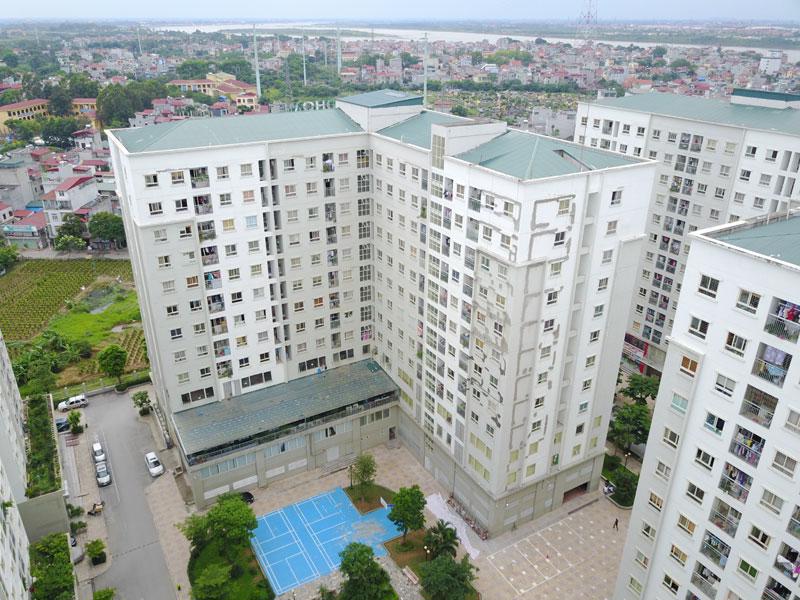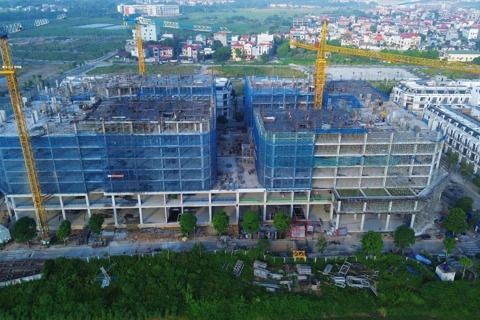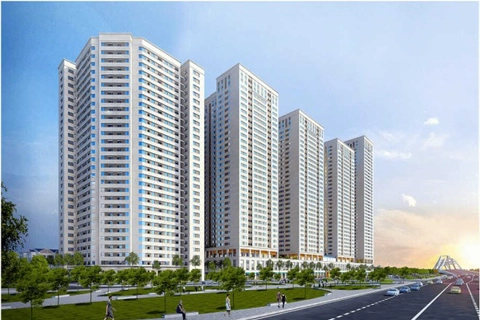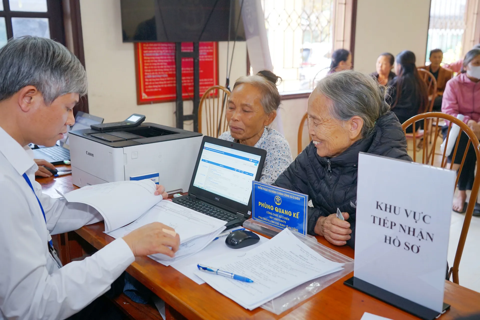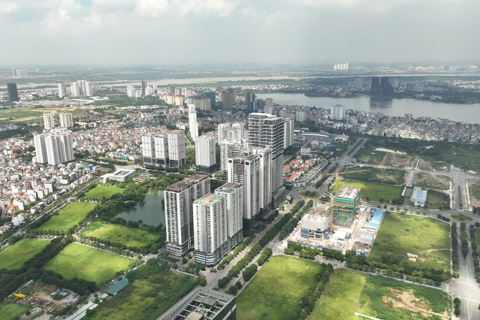Greater urgency required to push for social housing development package
Not only there is an imbalance in the structure of property supplies in the market, but the number of new projects has also been on the decline in the past three years.
The implementation of the social housing development package under the 2022-2023 socio-economic recovery program would relieve pressure on rising real estate prices and help stabilize the market.
| Social housing projects at Dong Ngac Commune, Bac Tu Liem District. Photo: Pham Hung |
“It is evident that adequate investment in infrastructure has positive impacts on the real estate market and improves people’s lives,” Vice Chairman of the Hanoi Real Estate Club Nguyen The Diep told The Hanoi Times.
For the past 10 years, Vietnam’s real estate market has developed in terms of size and quality meeting growing demands from the people.
However, the lack of supplies for different product segments, especially budget housing projects in major cities, is seen as an alarming issue, while around 70-80% of the demand in the market is for such products.
In Hanoi, a survey conducted by the real estate website batdongsan.com.vn revealed the majority of apartment projects to be completed in 2022 target customers of middle to high-income groups, such as the Park Home (Cau Giay District) with prices of VND38-42 million per square meter; The Nine (Cau Giay District) with VND42-50 million; Trinity Tower (Thanh Xuan District) of VND38.5 million; or Mipec Rubik 360 (Cau Giay District) with VND48-53 million.
Not only there is an imbalance in the structure of property supplies in the market, but the number of new projects has also been on the decline in the past three years.
Statistics from the Vietnam Association of Realtors (VARS) noted in 2021, the number of transactions of property projects in Vietnam was estimated at 61,700, but only 47,500 are of new products.
The market has seen little movement in the first quarter of 2022, partly due to a large chunk of resources from businesses and people going to Covid-19 response and rising prices of construction materials as the result of the ongoing conflict in Europe.
To address the issue, the National Assembly has approved a resolution on the socio-economic recovery program for the 2022-2023 period worth VND350 trillion ($15.4 billion), with one-third ($5 billion) being earmarked for infrastructure development.
In line with the program, the Government approved resolution No.11 on socio-economic recovery that includes new incentives to promote investments in social housing and renovation of old buildings.
Under the resolution, individuals and households could seek preferential loans from Vietnam’s Bank for Social Policies to purchase social housing or repair old houses/apartments under certain requirements.
The total lending package is estimated at VND15 trillion ($656 million), along with an interest rate subsidy package of up to 2% per year in the 2022-2023 period via the network of commercial banks.
“The monetary and fiscal support package would be significant to the economy and helps speed up the recovery process,” said economist Can Van Luc. For example, a 2% cut in VAT is seen as a much-needed boost for domestic consumption, including the real estate market. “For every one percentage point increase in consumption, the GDP growth is expected to expand by 0.12%,” Luc said.
According to Luc, a highlight from the upcoming support program is to address the shortage of social housing supplies, and in turn, contribute to the stability of social welfare.
Economist Dinh Trong Thinh expected the upcoming socio-economic recovery would spearhead economic growth in the coming period, provided that implementation of the program is carried out effectively to achieve its intended purpose, Thinh said.
“A recent study on consumer sentiment in real estate in Vietnam suggested 92% of the respondents are looking to acquire more housing products, especially in Hanoi and Ho Chi Minh City. The real estate market, however, is facing the issue of rising real estate prices but at the same time the lack of budget housing products. Government agencies need to place more priority in accelerating the disbursement of funds allocated to the socio-economic recovery program, or risk failing to meet its objectives,” said economist Le Dang Doanh. |

